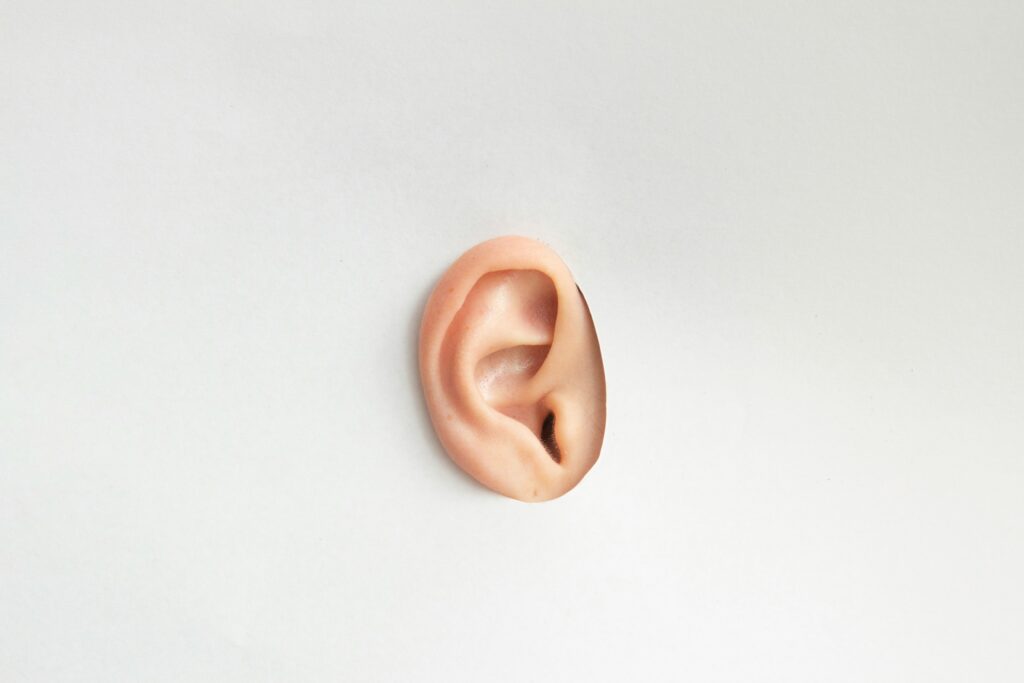
29th of January 2024
Tinnitus is a common symptom among individuals with environmental sensitivities, such as electrohypersensitivity and multiple chemical sensitivity.
Could tinnitus be caused by something you are taking or an indication of an undiagnosed medical condition?
Prescribed medications, supplements, or herbs, invariably influence our bodies in some way. Therefore, it’s important to ascertain whether any of these products might inadvertently contribute to the issue at hand. It is thus worthwhile to check whether anything we take could unintentionally be part of the problem. Additionally one must be mindful of medical conditions that could cause tinnitus symptoms and ensure that these are excluded as part of a thorough investigation into chronic tinnitus.
Ototoxicity
Ototoxicity is inner ear damage that develops as a side effect of taking certain medications. It can cause problems related to hearing and balance, functions your inner ear controls. It may be helpful to think of ototoxicity’s effects in terms of the word’s origins: “Oto” means ear. “Toxicity” means poisoning. https://my.clevelandclinic.org/health/diseases/24769-ototoxicity
List of Ototoxic Medications That May Cause Tinnitus or Hearing Loss
There are more than 600 prescription and over-the-counter drugs that can trigger tinnitus, make existing tinnitus worse, or cause a new tinnitus sound to appear.
Knowledge is power when it comes to protecting your hearing health from ototoxicity. Before beginning prescription medication, ask your doctor about any potential ototoxic effects. While taking medication with potential ototoxic effects may be inevitable for certain health conditions, your doctor may be able to prescribe an alternative that does not affect your hearing health. https://www.soundrelief.com/list-of-ototoxic-medications/
Hidden ototoxins?
“Natural Compounds as Occult Ototoxins? Ginkgo biloba Flavonoids Moderately Damage Lateral Line Hair Cells”
This research demonstrates the potential for ototoxic damage caused by unregulated herbal supplements and suggests that further supplement characterization is warranted.
FDA-approved drugs are not routinely tested for ototoxicity, so their potential to affect hearing often goes unrecognized. This issue is further compounded for natural products, where there is a lack of FDA oversight and the manufacturer is solely responsible for ensuring the safety of their products. Ref. Neveux S, Smith NK, Roche A, Blough BE, Pathmasiri W, Coffin AB. Natural Compounds as Occult Ototoxins? Ginkgo biloba Flavonoids Moderately Damage Lateral Line Hair Cells. J Assoc Res Otolaryngol. 2017 Apr;18(2):275-289. doi: 10.1007/s10162-016-0604-6. Epub 2016 Nov 28. PMID: 27896487; PMCID: PMC5352612. https://www.ncbi.nlm.nih.gov/pmc/articles/PMC5352612/
While not very common, acoustic neuromas and other head, neck, and brain tumors can cause tinnitus
Acoustic neuromas
Acoustic neuromas are also known as vestibular schwannomas, and are noncancerous tumors that grow in the ear, and can affect hearing and balance.
Tinnitus is a very common symptom of acoustic neuromas and many other inner ear conditions. Symptoms include balance problems and vertigo, headache and pressure, numbness in the face, facial twitching or weakness, swallowing problems, change in taste and tear production. These symptoms can be caused by many other, more common health issues. https://www.hopkinsmedicine.org/health/conditions-and-diseases/brain-tumor/vestibular-schwannoma
In children tinnitus often goes unnoticed. In some cases, the child is too young to describe what they are hearing, has come to think of it as normal, or is not troubled by the experience enough to mention it.
Although it is rare, more severe cases of tinnitus can cause enough distress that it interferes with sleep and concentration in school. https://www.chop.edu/conditions-diseases/tinnitus-in-children
Acoustic Neuromas in Children
Although they are more common in adults, acoustic neuromas can occur in children and teens, and may grow large before they are diagnosed. Children with acoustic neuromas most often have the genetic disorder neurofibromatosis type 2. In children with this disorder, acoustic neuromas may arise on both sides. Symptoms of acoustic neuroma in children are usually hearing loss, headache and unsteady gait (ataxia), elevated pressure inside the skull, tinnitus and dizziness. https://www.hopkinsmedicine.org/health/conditions-and-diseases/brain-tumor/vestibular-schwannoma
Noise-induced hearing loss (NIHL)
Loud noise exposure can also cause tinnitus.
•Can be prevented
•Most NIHL is caused by the damage and eventual death of hair cells inside the cochlea of the ear. Unlike bird and amphibian hair cells, human hair cells don’t grow back. They are gone for good. Ref. https://www.nidcd.nih.gov/health/noise-induced-hearing-loss
Video gaming and esports

Risk of sound-induced hearing loss from exposure to video gaming or esports: a systematic scoping review
This article was recently published in the BMJ Public Health (open access)
• The limited available evidence suggests that gaming may be a common source of unsafe listening, which could place many individuals worldwide at risk of hearing loss and/or tinnitus.
•Additional research on these relationships is needed along with steps to promote safe listening among gamers.
Ref: Dillard LK, Mulas P, Der C, et al Risk of sound-induced hearing loss from exposure to video gaming or esports: a systematic scoping review BMJ Public Health 2024;2:e000253. doi: 10.1136/bmjph-2023-000253 https://bmjpublichealth.bmj.com/content/2/1/e000253
Tinnitus can be a debilitating disease for some, leading to severe depression and loss of quality of life. It is concerning to note that adolescents and adult gamers might be at special risk that could have life-long consequences. Most of these individuals are not only exposed to loud noise from gaming but also to RF-EMF, ELF-EMF and blue light exposure from screens. Sometimes for extended periods of time.
A 2018 study noted that the tinnitus prevalence in Korean adolescents is relatively high, and thus, intervention may be necessary to prevent or reduce depression and suicidal ideation to ensure that other areas of life are not negatively affected. Ref. Kim JS. Association between tinnitus and mental health among Korean adolescents: the Korea National Health and Nutrition Examination Survey. Cent Eur J Public Health. 2018 Mar;26(1):65-70. doi: 10.21101/cejph.a4514. PMID: 29684301. https://pubmed.ncbi.nlm.nih.gov/29684301/
Less common tinnitus risk factors include
- Chronic conditions: diabetes, migraines, thyroid disorders, anemia, and certain autoimmune disorders such as lupus and multiple sclerosis are among the chronic conditions that have been linked to tinnitus.
- Ménière’s disease: tinnitus can be a symptom of Ménière’s disease, an inner ear disorder that can also cause balance problems and hearing loss.
- Jaw joint problems: the joint that connects the lower jaw to the skull is close to the ear. Jaw clenching or tooth grinding can damage surrounding tissue, causing or worsening tinnitus.
- Blood vessel problems: high blood pressure, atherosclerosis, or malformations in blood vessels, especially if they are in or close to the ear, can alter blood flow and cause tinnitus https://www.nidcd.nih.gov/health/tinnitus
Tinnitus research and challenges
•Although it is a common condition, there is still no standardized classification of tinnitus: Hackenberg B, O’Brien K, Döge J, Lackner KJ, Beutel ME, Münzel T, Pfeiffer N, Schulz A, Schmidtmann I, Wild PS, et al. Tinnitus Prevalence in the Adult Population—Results from the Gutenberg Health Study. Medicina. 2023; 59(3):620. https://doi.org/10.3390/medicina59030620
•There is no consensus or standardization for a specific questionnaire in either research or clinical use. There have also been recent efforts to distinguish tinnitus as a symptom and tinnitus as a disorder. Tinnitus disorder specifically reflects the associated psychological and physical impacts of the disease. Standardization of these processes will prove paramount for creating a lasting impact on future tinnitus research. Ref. Park, K.W.; Kullar, P.; Malhotra, C.; Stankovic, K.M. Current and Emerging Therapies for Chronic Subjective Tinnitus. J. Clin. Med. 2023, 12, 6555. https://doi.org/10.3390/jcm12206555
•A new study from Mass Eye and Ear investigators shows that individuals who report tinnitus, which present as a ringing in the ears in more than one out of ten adults worldwide, are experiencing auditory nerve loss that is not picked up by conventional hearing tests.
By measuring the response of their auditory nerve and brainstem, the researchers found that chronic tinnitus was not only associated with a loss of auditory nerve but that participants showed hyperactivity in the brainstem. https://www.masseyeandear.org/news/press-releases/2023/11/loss-of-auditory-nerve-fibers-uncovered-in-individuals-with-tinnitus
Ref. Vasilkov, V et al. “Evidence of cochlear neural degeneration in normal-hearing subjects with tinnitus” Scientific Reports DOI: 10.1038/s41598-023-46741-5 https://www.nature.com/articles/s41598-023-46741-5
•Otorhinolaryngologic complications after COVID-19 vaccination, vaccine adverse event reporting system (VAERS)
A potential correlation between COVID-19 vaccines and the onset of tinnitus
Adverse events following immunisation (AEFIs)
A significant finding of the study was the identification of tinnitus as a notable AEFIs following COVID-19 vaccination. While the precise mechanisms underpinning the development of tinnitus post-vaccination remain elusive, the accumulating evidence denotes a potential correlation between COVID-19 vaccines and the onset of tinnitus, necessitating more comprehensive clinical and mechanistic investigations. Ref. Shin, Shim, Lee, Ryu and Kim. Ref. (VAERS) Shin J, Shim SR, Lee J, Ryu HS and Kim J-Y (2024) Otorhinolaryngologic complications after COVID-19 vaccination, vaccine adverse event reporting system (VAERS). Front. Public Health. 11:1338862. doi: 10.3389/fpubh.2023.1338862 Copyright © 2024 Shin, Shim, Lee, Ryu and Kim. https://www.frontiersin.org/articles/10.3389/fpubh.2023.1338862/full
•Personalized treatment: tinnitus symptoms are diverse, with different people hearing different sounds in different patterns. The results of brain imaging studies in people with tinnitus also vary considerably from person to person. Using data gathered from study participants who are tracking their tinnitus using a smartphone app, along with brain imaging data, scientists are working to characterize the many forms that the condition can take. They aim to describe distinct tinnitus profiles and to identify the most effective treatment approaches for each one. https://www.nidcd.nih.gov/health/tinnitus#5
•The effects of radiofrequency electromagnetic fields exposure on tinnitus, migraine and non-specific symptoms in the general and working population: A systematic review and meta-analysis on human observational studies
Interpretation (according to the authors) – This is currently the best available evidence to underpin safety of RF-EMF. There is no indication that RF-EMF below guideline values causes symptoms. However, inherent limitations of the research results in substantial uncertainty.
Ref. Martin Röösli, Stefan Dongus, Hamed Jalilian, John Eyers, Ekpereonne Esu, Chioma Moses Oringanje, Martin Meremikwu, Xavier Bosch-Capblanch, The effects of radiofrequency electromagnetic fields exposure on tinnitus, migraine and non-specific symptoms in the general and working population: A systematic review and meta-analysis on human observational studies, Environment International, Volume 183, 2024, 108338, ISSN 0160-4120 ,https://doi.org/10.1016/j.envint.2023.108338. (https://www.sciencedirect.com/science/article/pii/S0160412023006116)
Current Options for Tinnitus
Management strategies include hearing aids, sound masking, tinnitus retraining therapy, cognitive behavioral therapy, and emerging therapies including transcranial magnetic stimulation and electrical stimulation. Although current treatments are limited, emerging diagnostics and treatments provide promising avenues for the management of tinnitus symptoms. As of November 2022, 50 clinical trials of treatments for tinnitus are registered at ClinicalTrials.gov as currently recruiting or preparing to recruit. Ref. Park, K.W.; Kullar, P.; Malhotra, C.; Stankovic, K.M. Current and Emerging Therapies for Chronic Subjective Tinnitus. J. Clin. Med. 2023, 12, 6555. https://doi.org/10.3390/jcm12206555
•EMFSA: cost effective solutions for EHS and MCS individuals that experience tinnitus (quick tips, not comprehensive).
Medical disclaimer: the information is not intended to be a substitute for professional medical diagnosis or treatment.
Aim to maintain optimal circadian and mitochondrial well-being. Note the impact of light, whether natural/artificial/beneficial/detrimental and use it to your advantage. It is free!
Disconnect the electricity (including the lighting circuits) from the distribution board to the bedroom when you sleep. Demand switches are available but are expensive and need to be installed by an electrician.
If possible have electrical “smart meters” replaced or moved.
Practice EMF Hygiene, starting with your cell phone use. Avoid using a phone in close proximity to your head or body.
Photobiomodulation can be helpful as part of a treatment protocol for tinnitus.
It is evident that we must be vigilant in our choices, whether opting for alternative medicine or conventional/mainstream medicine, and simultaneously, where applicable, exclude other medical conditions.
Teaching our children about the permanence and irreversibility of hearing loss is crucial, given that human hair cells in the ear do not regenerate.
While there are many clinical trials on the horizon, interdisciplinary research in the fields of environmental sensitivities should be encouraged.
